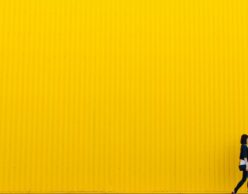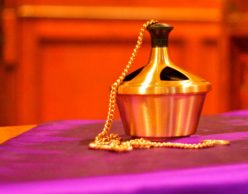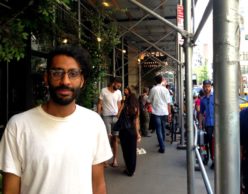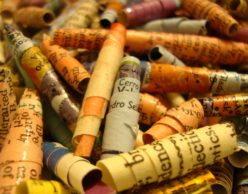Pepón Osorio on reforming his identity
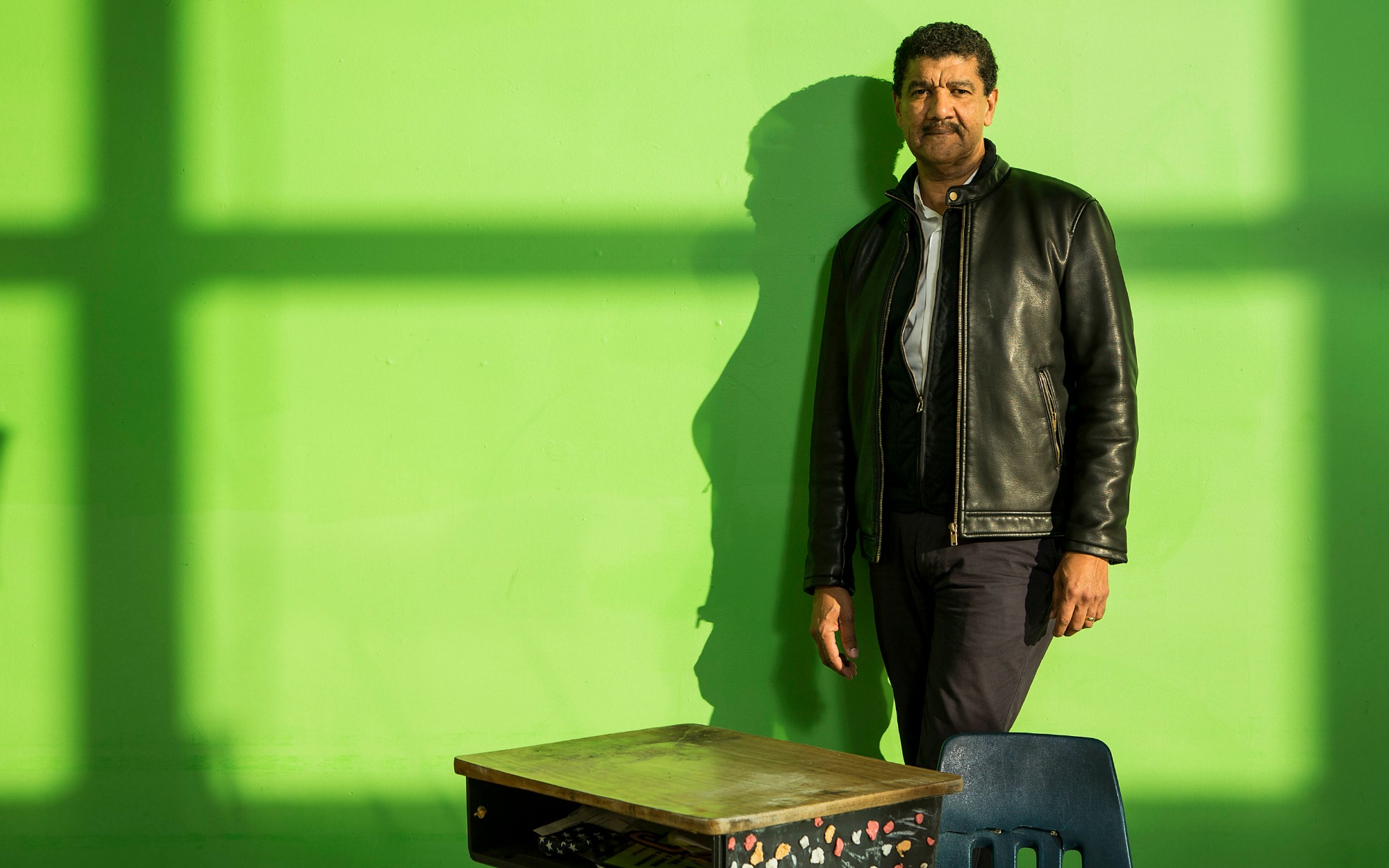
Acculturating to the U.S. is as much about place as it is about language and food. Certain places can evoke community, aspiration, and even terror. Nobody knows this better than Pepón Osorio, the Boricua installation artist and MacArthur Genius behind such works as “En la barberia no se llora,” which examines the masculinity and education that takes place in the barbershop, and “Face to Face” which takes audience members into the chaotic world of child welfare offices.
Osorio launched his newest large-scale installation this month in Philadelphia. “reForm” engages the mostly Latino students from the shuttered Fairhill Elementary school in North Philadelphia, who, with Osorio, will relocate the left-behind chalkboards, desks, chairs and other school ephemera to Temple Contemporary, the art gallery at Temple University. The recreated school will serve as community gathering and planning space, creating an interactive installation for both art fans and the community at large. Osorio recently sat down with The Mash-Up Americans to discuss his community, his identity, and what it means to be Nuyorican. Hint: It means being 100% Puerto Rican, and also 100% anything else you want to be.
Tell me a little bit about your background.
I’m an American citizen. I was born in Puerto Rico, one of the last remaining colonies in the world. Coming to New York City, and specifically to the South Bronx, was a way of decolonizing myself. In Puerto Rico, my future as a low-class citizen of African descent — which is very different than a Puerto Rican who is light-skinned — was very narrow. My opportunities had already been determined.
People in the South Bronx became obsessed with identity.
That’s how I ended up in the South Bronx. I came in ’75 and met my aunt, who I’d never met before. I went to college. I started to notice the contradiction between Puerto Ricans on the island and Puerto Ricans in New York City. In New York, Puerto Ricans forced their identity to be the number one priority in their life. People in the South Bronx became somehow obsessed with identity. Puerto Ricans, like any minority in the U.S., are often forced and pressured to become like everybody else. So as a response, you become super defined. I think this is happens with a lot of new immigrants to the point of exaggeration, because you are determined to resist who they want you to become. In Puerto Rico, there’s no question about being Puerto Rican.
New York was the first time I had hung out with anybody who wasn’t Puerto Rican. It’s different when you come here. I started hanging out and identifying with African Americans. My horizons opened. So I became more interested in what it meant to be a Puerto Rican, but from a Nuyorican perspective.
How do you define yourself now?
I’m getting to a place right now where I have to define less and less and less and explain myself less and less and less. It is freeing! It is hard to live in a duality or bifurcated reality, because you find yourself going with the flow of the majority, I’m sure you experience that. I don’t feel comfortable with only Puerto Ricans or Latinos. I don’t feel 100% comfortable as a minority either. Where I feel most at home is where I don’t have to define who I am. Where I move freely without having to define who I am or what I do. So I define myself best in the street. I just don’t have to justify myself. I am who I am and I come across people in multiple realities and deal with them in different ways. I participate in different realities when I don’t have to be one, but I can be more than one. There’s room for transformation.
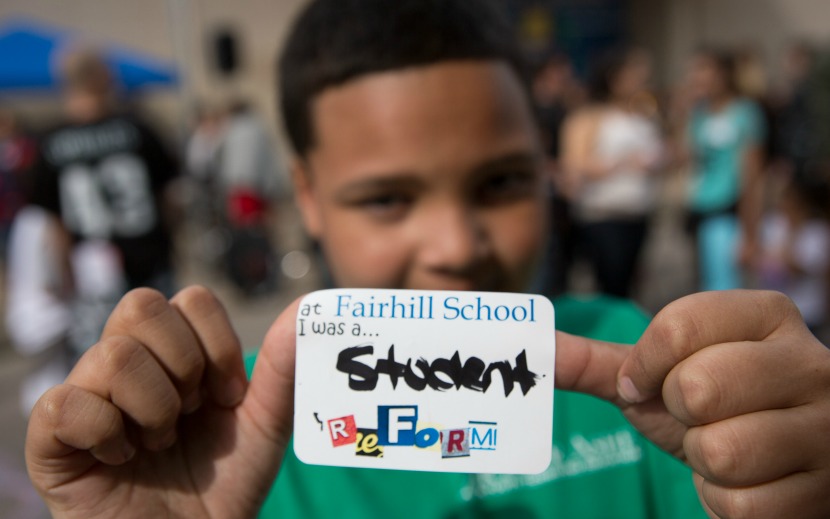
How does that fluidity inform your work?
My work is universal, it is not only Puerto Rican. I have a universal language that everyone can relate to. But it is for the working class, and it can be seen through a lens of a Puerto Rican reality. In “reForm,” I’m raising a question about education. It is worth it? Was the education you received worth it? How do you create urgency about education? How do you prioritize kids who aren’t prioritized by education, and who aren’t prioritizing it? These questions apply to every community of color and every citizen who has been disenfranchised. My work is about raising a mirror to see yourself and see how you fit in a much larger society. Who are you and how does that position you in relation to everyone else?
Why is installation so important to you?
I’ve always seen the Latino community is very hospitable. So I create hospitable environments that are hospitable to people inside and outside the community. They are places of gathering and reunification, of coming together and observing and conversing. I also create places that are defined by the community as a place where a lot of education happens, and where acculturation happens. For example, the barbershop. Places like that are systems of learning, just like the school.
That’s so interesting — because it’s such a hospitable community, but it also makes you uncomfortable.
I want to give myself the freedom to be who I am.
I hang out with people who are 100% Puerto Rican and I consider myself to be 100% Puerto Rican. But when I’m around them, I often feel that there’s no room for other alternatives. And I am for alternatives and for the new and different and possibilities within that, whether it’s food, or music, or neighborhoods, or education. There is a reality outside of the place we’re in. So I see myself as someone who understands 100% of what it is to be Puerto Rican but I want to look and go out there for other experiences. I’m often criticized because people believe that’s a threat to Puerto Rican culture, and I understand where that fear is coming from, but I want to give myself the freedom to be who I am. [Editor’s note: Welcome to the world of mash-up!]
Is that what you want to share with the kids in “reForm”?
With “reForm,” I am introducing the possibility of higher education. And if they want to get a quality education, they have to negotiate being something else other than just Puerto Rican, and understand that they can only expose themselves to new things by giving up a little bit of something that is old — whether that is their neighborhood or their ideas about education and priorities. I want them to understand their culture and also see how that fits in a much larger society.
There’s no apology to being Puerto Rican. There’s room for all of your identities to exist. I’m not giving my culture up. None of us should have to.


